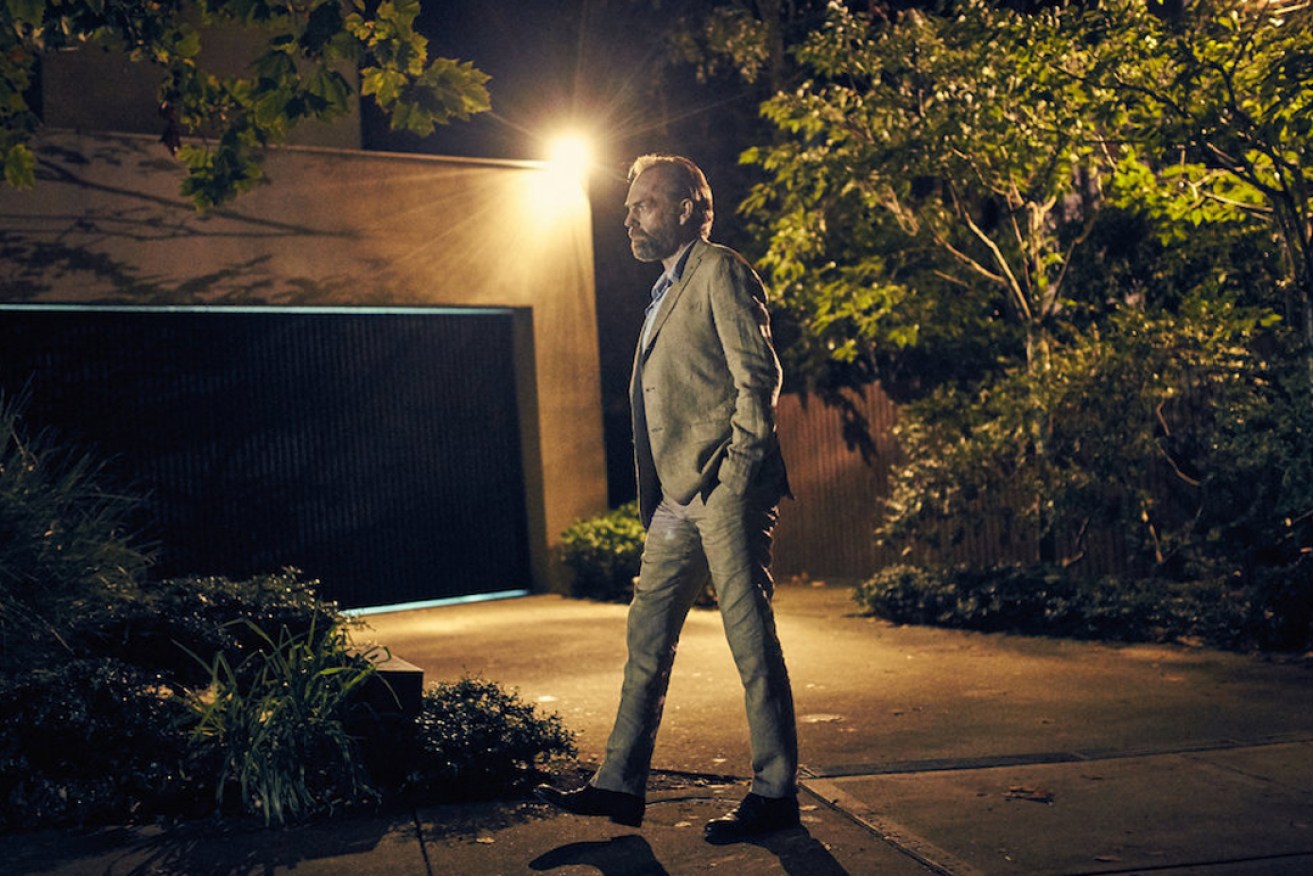Hugo Weaving leads brilliant cast in new ABC drama
More than a few parallels can be drawn between the ABC’s upcoming drama Seven Types of Ambiguity and its 2011 hit The Slap.

Hugo Weaving as Dr Alex Klima in Seven Types of Ambiguity. Photo: Ben King
Both are limited series produced by Matchbox Pictures, adapted from “important” recent novels about middle-class Australia. And both focus on surprising sexual entanglements, betrayals and legal conflicts, all launched by one potential act of child abuse.
But the most striking similarity is a structural one: just like The Slap, each of the six episodes of Seven Types of Ambiguity is told from the perspective of a different character.
The first episode follows Joe (Alex Dimitriades), a stockbroker who is currently tied up in a massive and sensitive deal involving the privatisation of parts of Australia’s healthcare system. But on a pivotal day of that deal, Joe’s seven-year-old son, Sam, goes missing after school.
It becomes clear, in the moment of this horrifying discovery, that Seven Types of Ambiguity is a very confident and intelligently made piece of TV. The entire series is gorgeously scored, and the soundtrack gently builds as Joe and his wife Anna’s (Leeanna Walsman) situation becomes less and less hopeful, while the mundanity of a suburban school transforms into something more sinister.
Earlier that afternoon, Joe’s assistant received a message allegedly from Sam’s school advising Joe to pick up his son an hour later than usual. When Joe discovers that Sam is missing, he calls his assistant to ask who left the message. She can’t remember. He asks: “Was it a man’s or a woman’s voice?” She says it was a man’s voice, and Joe’s terror immediately triples.
Joe and Anna eventually do find Sam safe after just a few hours — he’s been picked up by Anna’s estranged former boyfriend Simon (Xavier Samuel) — but the repercussions of this event have an extraordinary reach.
Anybody familiar with Elliot Perlman’s novel, upon which the series is based, will know how the story unfolds, but there are some significant structural differences.
The series is packed full of ambiguities, and the motivations of each character are rarely clear-cut. While there are elements of mystery scattered the whole way through, it’s clear that we’re never meant to understand the complete truth of these situations; instead, it’s more important that we understand the texture of this world, with its layers upon layers of ambiguity.
There are recurring aerial shots in each episode of cars and roads cutting across suburbia. We can see headlights and cars moving back and forth, but that’s all we’re able to know about the lives happening within. What does this particular view of humanity, at a distance, conceal?
Everybody in this show is grappling with some fundamental question of humanity and morality. At one point a character asks: “When you think of all those court cases, and all those trials over the centuries, all those crimes — how many of them were just terrible errors of judgments and mistakes made because human hearts are so needy?”
The narrative loses a little bit of clarity as it continues to sprawl out over the various episodes, but the acting is exceptional throughout. Unsurprisingly, Hugo Weaving makes a huge impact, and the second episode of the series, which focuses on his character, is very moving.
Weaving plays Simon’s psychiatrist, Alex. Alex has plenty of sympathy for his client, whose obsession with and love for Anna has driven him to a terrible position. At the same time, Alex is dealing with his own tragedy — his impending divorce from his long-term wife — which leaves him shattered and heartbroken.
There’s fine support from Sarah Peirse as the detective investigating Sam’s disappearance, and Andrea Demetriades is similarly excellent as Angela, who happens to be both Simon’s next-door neighbour and a sex worker who counts Joe as one of her regular clients. As written, the character doesn’t exactly move beyond the sex worker tropes it’s built from, but Demetriades finds something much more complex and nuanced in her performance.
I’d be surprised if the series didn’t end up with a decent swag of Logies and AACTA Awards next year. This is the kind of blue-chip Australian TV project that best represents what ABC’s drama department is capable of.
Seven Types of Ambiguity starts on ABC TV on Thursday April 13 at 8.30pm.
This article was first published on The Daily Review.




